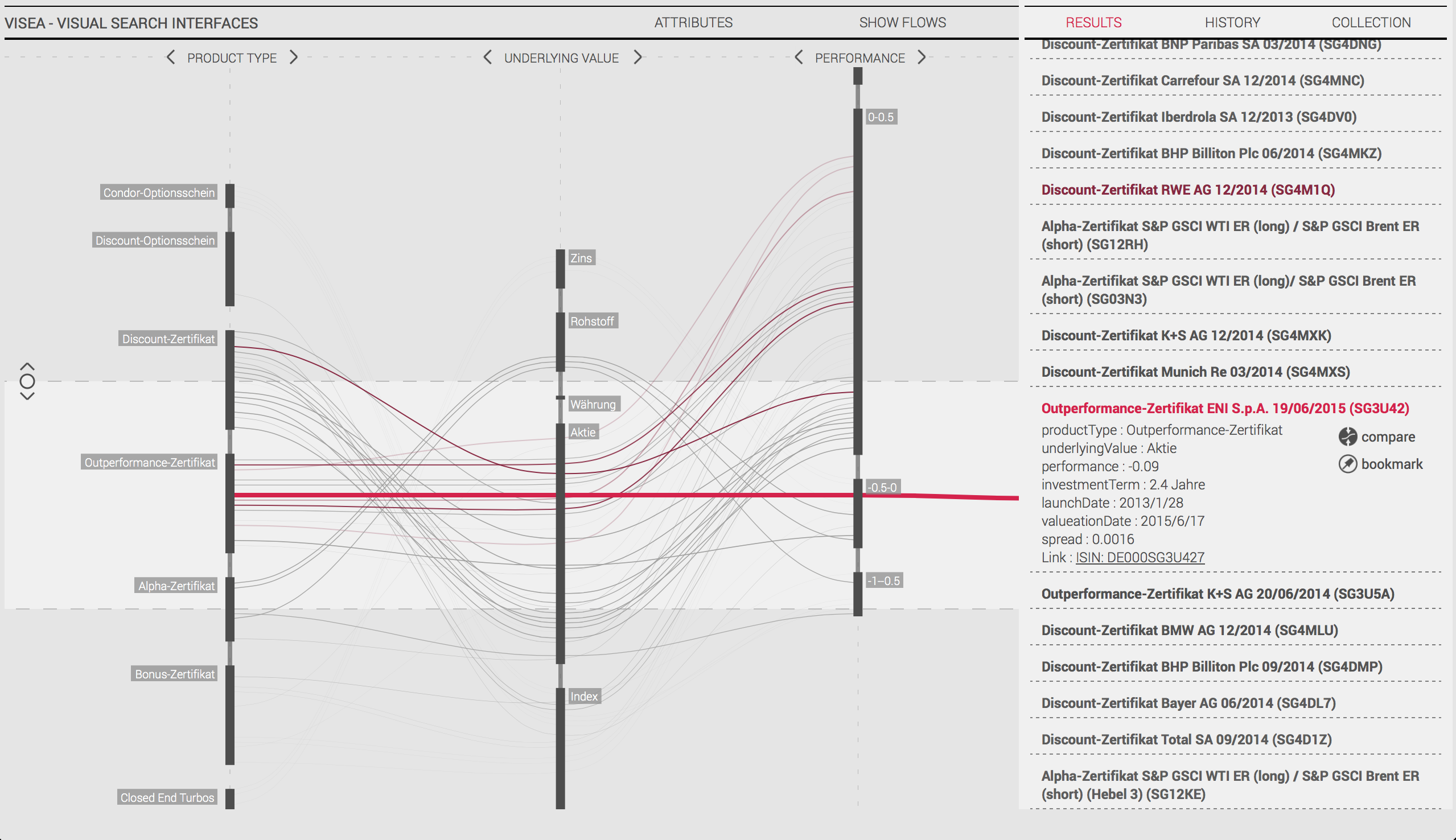The interface concept is designed for financial search and the concept focuses on data sets that are structured with a faceted classification. It is based on two visualization techniques that allow the representation of multi-dimensional data across a set of parallel axes: parallel coordinates and parallel sets.
Each parallel axis represents one facet of the multidimensional data set and is spatially separated in container elements representing the facet values. The height of each container shows the distribution of data items within the facets and allows the analysis of predominant values. A product is visualized by a polyline that intersects each axis at the appropriate value. In addition to the analytical benefits of the parallel coordinate visualization, this concept supports facet filters as well as a Similarity Search. Multiple filters can be activated on one or different axes to create complex filters as known from Faceted Browsing to narrow the scope. With the Similarity Search approach, the user starts his search by selecting a product of interest matching his expectations in one or more characteristics. The function automatically centers all intersections of the selected product to the median line of the visualization. Hence, products with similar properties are arranged close to the center and can be easily identified.
Prototype
The prototype is developed in HTML5, CSS, and JavaScript and uses the visualization library D3.js.
>
Related Publications
Exploring Similarity - Improving Product Search with Parallel Coordinates. Proceedings of the 16th International Conference on Human Interface and the Management of Information. Information and Knowledge in Applications and Services, 8522 , Springer-Verlag New York, Inc., New York, NY, USA, 2014, ISBN: 978-3-319-07862-5.
Visual Innovations for Product Search Interfaces. 44. Jahrestagung der Gesellschaft für Informatik, Informatik 2014, Big Data - Komplexität meistern, GI-Jahrestagung 2014, Stuttgart, Germany, 2014, (1st International Workshop on Future Search Engines at INFORMATIK 2014).
Acknowledgements
This research has been supported by the European Union and the Free State Saxony through the European Regional Development Fund (ERDF). The concept was developed in the project VISEA that has been conducted in cooperation of the Chair of Media Design -Technische Universität in Dresden, Unister GmbH from Leipzig and queo GmbH from Dresden, Germany.
